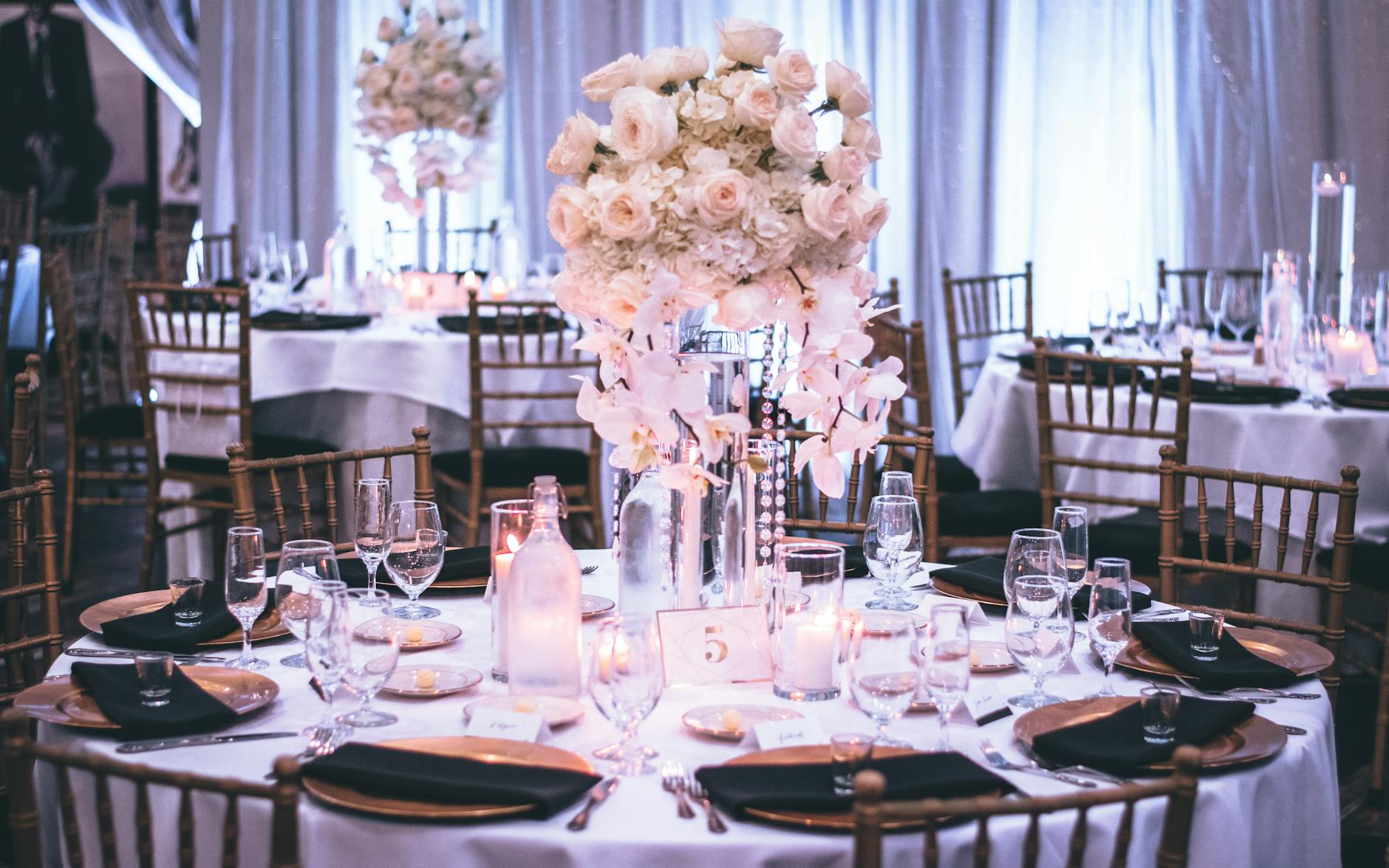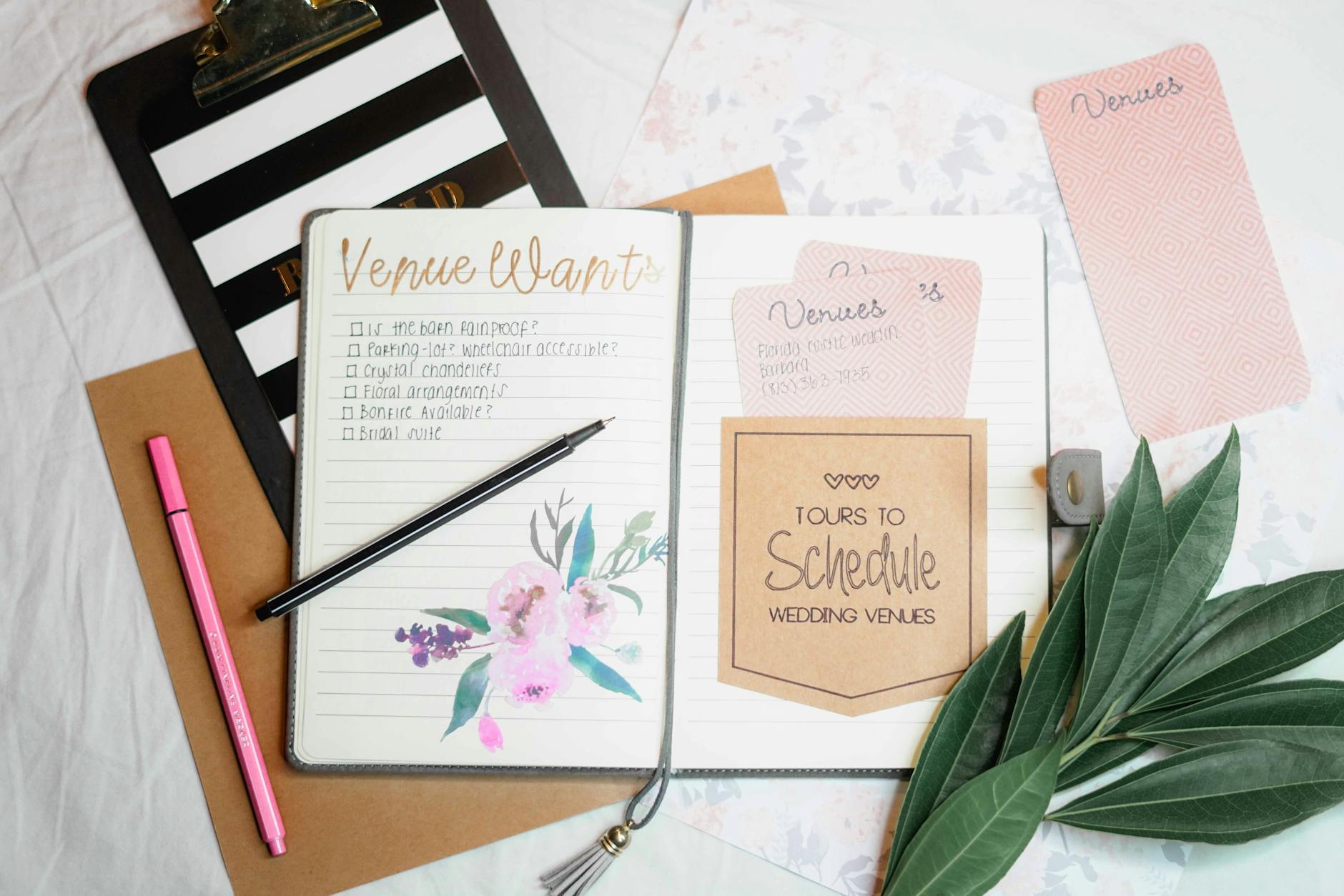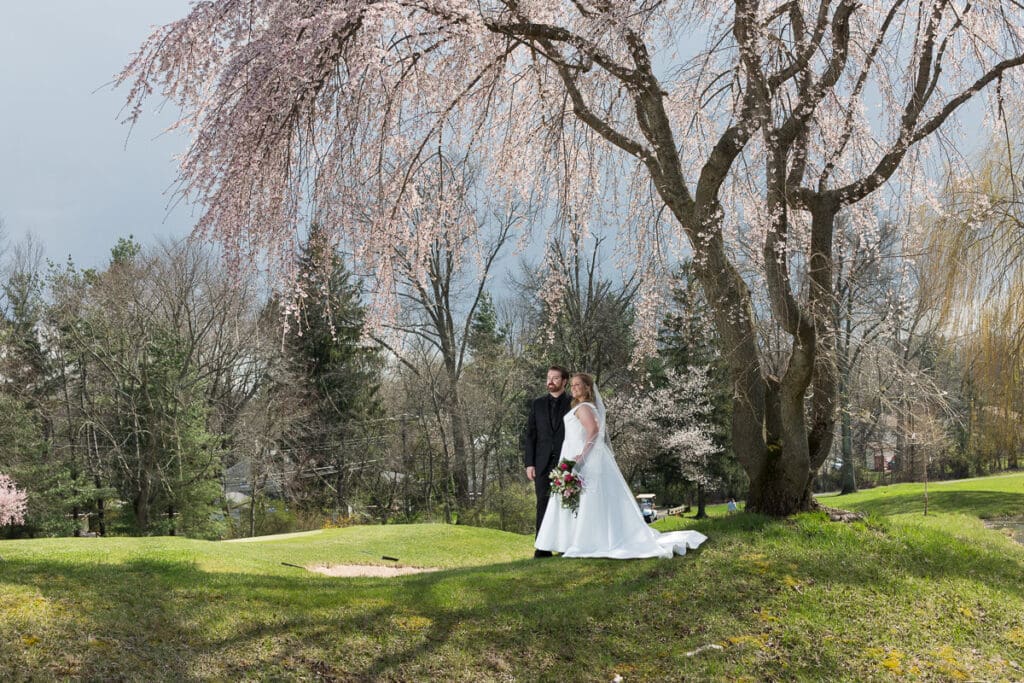Outdoor weddings are breathtaking, but they come with their own set of challenges that can easily catch couples off guard. From unpredictable weather to overlooked logistical needs, small missteps can turn into big surprises. Many couples get so caught up in creating the perfect ambiance that they forget to plan for the “what-ifs,” like backup shelter for rain or making sure guests are comfortable in outdoor conditions. Being prepared means thinking about more than just décor—it’s about anticipating the unexpected to ensure your day goes off without a hitch.
Weather Challenges and Contingency Planning Outdoor wedding
Outdoor weddings are magical, but they rely heavily on the weather cooperating. Even the sunniest days can turn into unpredictable storms or uncomfortably sizzling afternoons.
Making weather-focused plans ensures that nothing dampens your celebration, no matter what Mother Nature has in store.
Rain or Extreme Weather Plans
Rain isn’t the end of your dream wedding, but failing to prepare for it could be. Having a solid rain plan is essential. Renting tents with removable sides is a lifesaver—not only do they protect guests from downpours, but they also offer flexibility if the weather improves mid-event.
Choose sturdy tents strong enough to withstand wind while keeping your decor safe and intact.
Indoor alternatives are another must-have. Many venues include indoor backup options—ensure you inspect them in advance and confirm they can accommodate your guest list.
Moveable decor pieces like floral arrangements and an adaptable seating chart make a quick indoor transition seamless.
For ceremonies planned rain-or-shine, providing umbrellas for guests is a thoughtful touch. Large umbrellas for photo areas or renting standalone coverings can shelter everyone without compromising how your wedding looks on the big day.
 Photo by Angel Ayala
Photo by Angel Ayala
Sun Protection for Guests
Bright sunshine may look incredible in photos, but it can quickly become an issue if you don’t prepare. Guests stuck under direct sunlight for hours may start to feel uncomfortable, so keeping sun protection in mind is important.
- Sunscreen stations: Set up baskets with sunscreen so guests can reapply as needed. Small travel-size bottles work well and can even double as practical wedding favors.
- Shaded areas: Use canopy tents, parasols, or naturally shaded spots at your venue to create reprieves from the sun. Position seating near these areas to ensure comfort during the ceremony and reception.
- Hand fans: Especially in summer, handheld fans are a simple way to make the heat more bearable. Some couples customize these with wedding details, making them both functional and charming keepsakes.
Thinking ahead means creating an environment where everyone is comfortable celebrating, no matter the temperature.
Temperature Control Solutions
Seasonal weather can swing unexpectedly, leaving guests either shivering or overheating. Being prepared with solutions makes a big difference when the temperature doesn’t cooperate.
For chilly evenings or off-season weddings, consider:
- Renting **heating
Guest Comfort and Accessibility
Outdoor weddings offer a unique and unforgettable experience, but they also require extra attention to guest comfort and accessibility. Ensuring every guest feels welcome, comfortable, and included is not just a courtesy—it’s a responsibility of good hosting.
Sufficient Seating and Reserved Areas
Comfortable seating isn’t just a design choice—it’s about creating a space where guests can truly relax and enjoy the festivities. Opt for chairs with cushioning or sturdy seating that won’t tip over on uneven ground. Avoid materials like metal that can become uncomfortably hot or cold depending on the weather.
For those closest to you—such as your parents, grandparents, or the wedding party—reserved seating is a wonderful touch. Use signage or decorative markers to designate these areas. Doing this ensures important guests don’t have to search for a spot and can enjoy the ceremony stress-free.
Restroom Facilities
Convenient and clean restroom access is crucial for any outdoor event. Portable restrooms have come a long way—they now include options with flushable toilets, sinks, and even air conditioning. If possible, opt for luxury restroom trailers, which offer a more comfortable and private experience. Don’t forget to budget for restroom cleaning services during the event, especially if your guest list is large.
Location matters too. Make sure facilities are easily accessible from the main event areas but discreetly tucked away.
 Photo by James Cousineau
Photo by James Cousineau
Accessibility for All Guests
Think beyond convenience and focus on inclusion. Your wedding venue should accommodate guests with mobility challenges, hearing impairments, or other needs.
- Pathways: Ensure there are flat, stable paths to key areas like the ceremony, reception, and restrooms. Temporary mats or walkways work well on grass or gravel.
- Wheelchair Access: Check if ramps are needed and that any uneven terrain is smoothed out.
- Shuttles and Parking: Offer transportation between parking and event areas for elderly or mobility-impaired guests. Set aside accessible parking spots close to the action.
- Seating Options: Provide a mix of seating so everyone can be comfortable, from sturdy chairs for older guests to space for wheelchairs within key seating arrangements.
Remember, small details like offering hearing devices or having someone available to assist can mean the world to your guests.
Providing Refreshments
The importance of hydration cannot be overstated, especially for outdoor summer weddings where heat can be draining. Hydration stations with water coolers, infused water dispensers, or pre-packaged water bottles are incredibly appreciated. Decorate these areas to match your theme, so they don’t feel out of place.
If your event stretches into meal or cocktail hours, make sure to have non-alcoholic drink options, as well as quick snacks like fruits or packaged goods. This provides comfort and keeps guests energized without waiting for the main meal.
By prioritizing comfort and accessibility, you ensure that every guest feels valued and included on your big day. These considerations go a long way in making your wedding a joyous and inclusive celebration for everyone.
Vendor Coordination and Services
Coordinating with vendors is one aspect of wedding planning that often gets underestimated. Yet, it is the backbone of ensuring all pieces of your big day come together seamlessly. Outdoor weddings come with unique challenges, from weather changes to logistical hurdles, making clear vendor communication and service planning vital. Let’s explore what to keep in mind to keep everyone on the same page.
Timeline and Clear Communication
It’s impossible to overstate the importance of a detailed, well-organized timeline. Vendors rely on this to ensure they show up where they need to be and when. A thoughtfully sketched-out schedule minimizes confusion and leaves less room for error.
Here’s what you should include in your timeline:
- Setup/breakdown times for decorators, florists, and caterers.
- Key moments: ceremony start, toasts, and dinner service.
- Vendor arrival and departure times.
Make sure that every vendor receives the final timeline well before the wedding date. Some couples choose to assign a point of contact (usually a planner or coordinator) to pass along updates, keeping communication streamlined. This clarity creates a chain of confidence and ensures every detail stays on track.
Vendor Needs and Breaks
Vendors might seem like invisible facilitators during your wedding, but they’re working hard behind the scenes. From photographers to DJs, everyone deserves proper consideration for breaks. After all, a tired DJ or starving photographer isn’t going to be at their best!
Here’s what to arrange for vendors:
- Vendor Meals: Offer meals that align with your reception dining—no one wants cold pizza while guests enjoy filet mignon. Check with your caterer to confirm vendor meal options.
- Tidy Break Spaces: If possible, designate a quiet spot where vendors can step away briefly to recharge.
- Agreed Break Times: This ensures vendors can coordinate breaks with their work schedule, like capturing key moments.
Good hospitality extends to the team making your day unforgettable. Treating your vendors with respect reflects positively on you and keeps the event running without hiccups.
Staffing Adequacy
Have you ever waited too long for food at a large gathering? That’s exactly what you want to avoid at your wedding. Ensuring adequate staff for food service, bartending, parking, and guest assistance is crucial for keeping everything flowing smoothly in an outdoor setting.
Here are things to plan for:
- Guest-to-Staff Ratio: Typically, one server per 10-15 guests works best, though this can vary by caterer.
- Additional Outdoor Resources: Outdoor weddings may require extra staffing for setup tasks like tent placement or weather monitoring.
- Bartenders: Plan at least one bartender for every 50-75 guests, depending on drink complexity and crowd size.
The more organized your staffing is, the better the guest experience will be. When in doubt, ask your caterer or event coordinator for staffing recommendations tailored to your venue and wedding size.
 Photo by Tae Fuller
Photo by Tae Fuller
Taking care of your vendors not only helps your event run effortlessly but also leaves a lasting impression that encourages them to go above and beyond for you. Clear planning here is your safeguard against last-minute chaos.
Lighting and Ambiance
Lighting plays an essential role in creating a memorable outdoor wedding experience. It’s not just about ensuring the space is illuminated—it’s about setting the tone and inviting your guests into a magical atmosphere. The right lighting serves both functional purposes, like clarity for your photographer, and aesthetic goals, like enhancing the romantic mood.
Photography Lighting
A common oversight comes in planning lighting for photos—the pictures that will preserve your wedding memories forever. When natural light fades, photography switches to depending on setup lighting. This requires intentional design to avoid dark, unclear photos or overly harsh shadows.
Consider these options for enhancing photo opportunities:
- Spotlighting: Place soft, warm lights to highlight key areas like the ceremony altar, sweetheart table, or dance floor. This ensures these moments are captured with crisp detail.
- Golden Hour Adjustments: If your ceremony transitions into the evening, account for the perfect placement of lights to replace natural golden hour light.
- Backdrop Lighting: Pro tip: Use string lights, illuminated fabric, or softly-lit floral walls as photo backdrops. These small efforts turn casual snapshots into frame-worthy memories.
- Work with your photographer: When discussing lighting with your photographer, ask for tips on getting the right placement or intensity of lighting to align with their equipment.
Proper lighting doesn’t just enhance visibility—it elevates the emotions and vibrancy of your photos, making every shot look like it belongs in a magazine.
Mood and Ambiance Lighting
Mood lighting strikes a fine balance between practicality and enchantment. It’s how the overall vibe is felt and seen by your guests, especially in the evening. String lights, for example, are often associated with romance and elegance, weaving together a fairytale-like setting.
Ideas for creating captivating ambiance at an outdoor wedding:
- String Lights: Suspend these overhead, either crisscrossing or as a ceiling over reception tables. Edison-style bulbs are especially chic for a rustic or vintage theme.
- Candles & Lanterns: Line walkways or decorate tabletops with lanterns or candles inside clear holders to bring subtle yet warm lighting to smaller spaces.
- Bar & Dessert Areas: Draw attention to key zones like the bar or dessert station with focused lighting. Use accent pieces like marquee letters for a personalized glow.
- Trees Wrapped in Lights: If your wedding venue has tall trees, wrap their trunks and branches with fairy lights. It’s decorative, practical, and undeniably beautiful.
 Photo by Jonathan Borba
Photo by Jonathan Borba
The evening transforms when lighting is done right. Guests will move freely and enjoy the surroundings without bumping into furniture, all while becoming part of a captivating environment where every corner glows with magic.
Legal and Logistical Details
Planning an outdoor wedding is exhilarating, but it comes with a unique set of legal and logistical challenges that couples often don’t think about until the last minute. Whether it’s securing permits, arranging parking for guests, or creating emergency preparedness plans, addressing these details early helps your day run smoothly. Let’s dive into some key aspects you can’t afford to forget.
Marriage Licenses and Permits
 Photo by picjumbo.com
Photo by picjumbo.com
Outdoor weddings often require more than simply securing a marriage license—you may also need permits for your chosen venue, especially if it’s a public park, beach, or forest space.
Each locale will have its own rules, so start researching well in advance.
Things to keep in mind:
- Marriage License Timeline: Most states require you to obtain your marriage license a few weeks before the big day. Don’t forget to check for waiting periods—some licenses only become valid after several days.
- Venue-Specific Permits: For ceremonies in state or national parks, you may need a Special Use Permit. These permits often include specific restrictions about amplified music, furniture placement, or the number of guests allowed.
- Local Ordinances: Some areas require noise permits for events that stretch into the evening. Be sure to review these to avoid awkward interruptions mid-celebration.
Small administrative tasks like these may feel tedious, but skipping them can lead to unexpected fines—or worse, canceled events.
Transportation and Parking
Transportation logistics can be tricky, especially for outdoor venues located in remote or rural areas. Your guests will appreciate thoughtful planning that makes their arrival stress-free.
Key considerations for transportation include:
- Parking Availability: Confirm if your venue has enough parking for guests. If not, consider nearby lots or street parking, and inform guests ahead of time with detailed directions.
- Shuttle Services: For venues with limited parking or for events serving alcohol, shuttles are a lifesaver. Coordinate pick-ups from hotels or centralized locations to streamline the process.
- Accessibility: Make sure your plans accommodate elderly guests, those with mobility challenges, and families with young children. Designated drop-off zones near the ceremony or reception entrance can be incredibly helpful.
- Guest Communication: Share transportation and parking instructions on your wedding website or invitations. Include maps, weather considerations, and estimated walking distances.
Taking the time to manage transportation logistics shows how much you value your guests’ experience.
Emergency Preparedness
An outdoor wedding opens the door to surprises—both delightful and disastrous. Having a solid emergency plan ensures every hiccup is handled with grace.
What should be on your checklist?
- First Aid Kits: Stock them with essentials like bandages, over-the-counter medications, and bug spray. Place them in accessible yet discreet areas
- Fire Safety: If you’re using candles, torches, or propane heaters, meet with the local fire marshal to ensure your setup complies with regulations. Always have fire extinguishers on hand.
- Weather-Ready Supplies: From umbrellas and ponchos for rain to portable fans for heatwaves, having weather-specific items on standby keeps everyone comfortable. If cold is a concern, consider adding blankets or outdoor heaters.
- Emergency Contacts: Assign someone from your wedding party or professional staff to be the point of contact for emergencies. Share their phone number with key vendors and family members.
By planning for the unexpected, you’ll be ready for anything, ensuring your day is magical no matter what happens.
Backup Plans for Unexpected Issues
Outdoor weddings come with a dose of unpredictability. Mother Nature might decide to throw in some surprises, from sudden gusts of wind to unexpected rain showers. And let’s not forget those essential last-minute needs that always seem to arise when no one’s looking! Having a comprehensive backup plan ensures the day stays on track, no matter what challenges emerge.
Alternatives for Weather Changes
 Photo by Natasha Fernandez
Photo by Natasha Fernandez
The biggest wild card for outdoor weddings is the weather, making alternative arrangements a must.
What happens if sudden rain clouds roll in, or if the temperature drops unexpectedly? For situations like these, having backup options is your safety net.
- Consider an indoor venue option: Always choose a venue that can accommodate shifting the celebration indoors. Whether it’s a rustic barn, a nearby lodge, or a dedicated event room, confirm it can host your guest count comfortably.
- Rent large tents with side panels: These not only shield guests from rain but also provide coverage from strong winds or chilly weather. Bonus? You can keep the outdoor ambiance intact while staying dry.
- Stay tuned to weather forecasts: The week leading up to your wedding is crucial. Share updates with your planner and vendors and prep your guests if shifts are likely.
- Emergency rain gear: Stock up on umbrellas and ponchos for your guests. Some couples even personalize these items, turning them into unique keepsakes.
Thinking ahead about weather possibilities helps you meet the unexpected with style and grace.
Last-Minute Supply Needs
No matter how flawless the execution, some things slip through the cracks, especially for an outdoor event. Last-minute supply needs can range from those you never realized you’d need to items like bug spray, extra seating, or portable heaters.
Here’s a checklist of items to consider:
- Bug Spray and Citronella Candles: Bugs can be pesky, and no one wants to spend the evening swatting away mosquitoes. Place sprays discreetly around the venue or provide insect-repellent wristbands.
- Portable Heaters or Blankets: If the temperatures drop in the evening, having portable heaters spread around seating areas keeps your guests cozy. Offering plush blankets at lounging spots adds a thoughtful touch.
- Foldable Extra Chairs: Outdoor venues often mean uneven terrain or unexpected guest counts. Keep a stack of lightweight, foldable chairs on standby for a quick solution.
- First Aid Kit and On-the-Go Needs: Include standard items like band-aids, stain remover, safety pins, and shoe polish—it’s the small emergencies no one anticipates that can make all the difference.
- Mini Refreshment Station: Whether it’s hydrating guests with water or providing small fans for warmer weather, these can save the day for outdoor comfort.
Preparing for these “just-in-case” situations doesn’t take much effort but saves you from unnecessary stress on your big day. Remember, an organized wedding is a happy wedding!
Post-Wedding Cleanup and Management
Planning the perfect outdoor wedding doesn’t stop at the end of the celebration. Many couples often overlook one crucial aspect: post-wedding cleanup and management. Without planning ahead, this final task can become overwhelming.
From cleaning up trash to securing gifts and décor, every detail requires attention to keep the transition smooth and stress-free.
Cleanup Crews and Trash Disposal
Who cleans up after the wedding? Unlike indoor venues with staff, outdoor weddings often need extra planning. A cleanup crew can save you from a big mess.
Hiring professionals means the venue looks just like it did before. They’ll remove trash, pack up rentals, and clean spills. Some even offer eco-friendly options, like recycling or donating leftover items.
For DIY setups, keep these tips in mind:
✔ Check venue rules: Some require trash sorting or full removal, while others handle it.
✔ Use trash and recycling bins: Keep them easy to find but not an eyesore. Have someone check and empty them.
✔ Ask for help: If hiring a crew isn’t an option, assign family or friends to specific tasks.
Planning cleanup in advance makes your big day stress-free. Have any cleanup tips? Share them below!
Leaving an outdoor venue without proper cleanup can lead to fines or additional fees. A solid plan keeps unexpected costs at bay, and the venue owners will thank you for it!
 Photo by SHVETS production.
Photo by SHVETS production.
Collecting and Storing Gifts
Wedding gifts and personal décor bring joy, but they also pose logistical challenges once the event is over. Without a system in place, these items can quickly pile up, causing unnecessary stress at the end of a long day.
Organize gift collection with these strategies:
- Designate a Gift Zone: Set up a secure, clearly marked area where guests can drop off presents and cards during the event.
- Assign Helpers: Ask a responsible person—like a close family member or friend—to oversee this area and ensure nothing gets misplaced. This includes keeping an eye on the card box, which often contains cash gifts.
- Use Storage Containers: Pack items like fragile centerpieces, rented décor, or personalized signage into labeled bins for easy transportation back home or to storage. This minimizes damage and makes unpacking easier later.
- Prepare Vehicles: Ensure enough vehicle space is available for gift transportation, especially for larger items. Consider enlisting an extra car or two if needed.
Pro tip: Create a checklist to ensure you don’t leave behind anything important, such as photo albums, cake toppers, or personal items your guests brought for the day. By the end of the wedding, you’ll be glad you planned ahead to collect everything efficiently.
Pre-planning for cleanup and post-wedding logistics ensures your big day ends on a seamless, stress-free note.
Conclusion
Planning an outdoor wedding is magical, but it takes careful planning. Many couples forget key details. Weather plans, guest comfort, vendor breaks, and cleanup all matter. These small things can make or break the day.
Good planning means expecting the unexpected. Keep things fun but also practical. Your wedding should be about joy, not stress. Prepare ahead, and you’ll thank yourself later.
Happy guests mean great memories. Focus on comfort and special moments. Do you have a tip or success story from an outdoor wedding? Share it below to help others!








